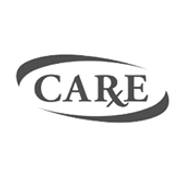
Cholesterol is naturally produced in the body, and it’s also essential in the formation of cell membranes and vital hormones. If your doctor has discussed high cholesterol with you, you likely have several questions about what this substance is. Below are answers to some of the most commonly asked questions about cholesterol.
What You Need to Know About Cholesterol
What is it?
It’s described as a waxy substance that is present both in different kinds of food and in the body. The liver is the organ responsible for making cholesterol that the body needs to function correctly. It can be found in cell membranes and is integral in the production of hormones.
It’s often classified as HDL (high-density lipoprotein) and LDL (low-density lipoprotein). HDL is also commonly referred to as good cholesterol that takes out LDL, or bad cholesterol, from the blood.
When should you be worried about it?
Cholesterol can be good or bad, but at high levels, it will put people at risk for coronary heart diseases. When it builds up in the arteries, atherosclerosis develops. This restricts blood flow, as plaque formation narrows the affected arteries.
Heart disease follows when not enough blood reaches the heart. Once plaque ruptures, the blood clot that forms and travels along the bloodstream can cause either a heart attack or a stroke when it blocks an artery.
What causes high levels?
Various factors can contribute to raised levels, including a family history of high cholesterol, food rich in trans and saturated fat, inactivity, and being overweight. Food items like cheese, red meat, baked goods, chocolate, and most fried and processed foods are the usual culprits in increasing a person’s levels.
Additionally, aging can bring about higher cholesterol, aside from other health conditions such as alcoholism, diabetes, kidney disease, liver disease, and hypothyroidism.
How can someone manage high cholesterol?
 Those who are genetically predisposed to having high cholesterol typically need to take medications, as well as those who already have increased levels. Nevertheless, anyone with high levels should maintain a healthy lifestyle that benefits the heart.
Those who are genetically predisposed to having high cholesterol typically need to take medications, as well as those who already have increased levels. Nevertheless, anyone with high levels should maintain a healthy lifestyle that benefits the heart.
This includes eating a heart-healthy diet, refraining from smoking, and doing regular exercise. Foods that are high in fiber and low in saturated and trans fat help bring down cholesterol levels. Aim to eat more whole grains, fish, vegetables, fruits, and meat that has been baked, broiled, roasted, or poached.
When you need a reliable local pharmacy to fulfill your cholesterol medication needs, visit Columbia Hickory Pharmacy in Columbia, MD. A friendly and attentive pharmacist will expertly attend to concerns that range from dispensing essential pharmacy supplies like medications for allergies and eczema to compassionate counseling for HIV symptoms. Call (410) 964-6409 or visit them online to learn more about their services and locations.
About the Business
Have a question? Ask the experts!
Send your question

